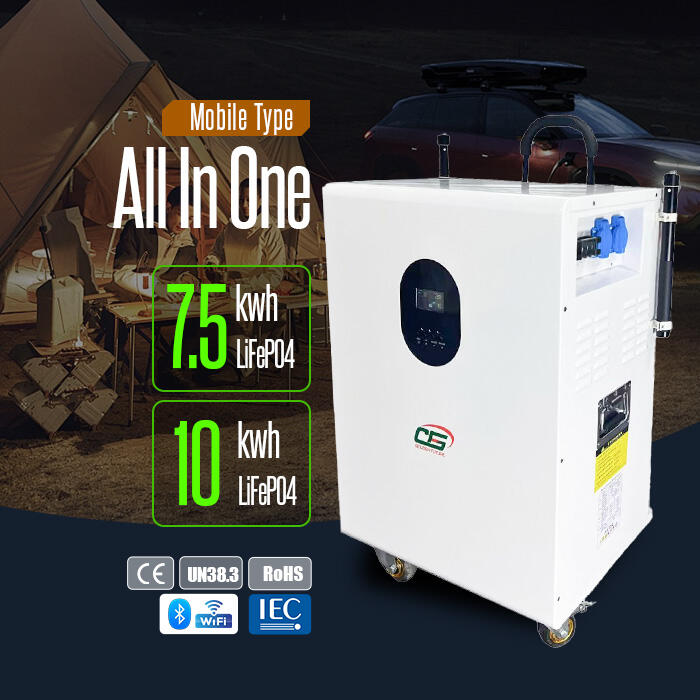Peak hours for any business speak to when it consumes the highest amount electricity. For example, consider 9 to 5 offices weekdays, or retail stores on weekends when they are packed with customers. Peak electricity consumption hours can trigger increased electricity prices. In extreme cases, businesses can face blackouts when electricity consumption rises and the grid fails to meet demand. These blackouts can lead to operational halts and loss of customers. Commercial energy storage can solve the problems presented by peak consumption in an economically efficient way. It serves on a business’s budget and operational disruptions.

For businesses, one of the most significant benefits of commercial energy storage is reduced energy costs during peak times. Commercial energy storage systems charge during off-peak periods when electricity is cheaper, usually during the night or early morning when demand is low. When peak periods arrive, businesses will not need to purchase expensive, grid electricity as they will use the electricity stored in the energy storage systems. This helps businesses avoid expensive peak-hour utility costs. For instance, a manufacturing plant can charge the energy storage systems during the night when electricity is cheap and use the energy stored during the peak afternoon hours. The savings will accumulate over time, and the plant can use those savings to enhance other areas or grow the business. Moreover, commercial energy storage systems can be scaled to fit a business's needs. Whether a business is a small shop or a large factory, they can purchase systems that will fit their operational use.
Let’s think about grid stress and its possibilities. When customers simultaneously utilize the grid and the electricity demand peaks, people run the risk of overloaded grids. Eating customers will make the power outage painful for restaurants stuck with fryers and fridges! Losing the ability to sell online is devastating, and restaurants risk losing food and other valuable resources. This is where commercial energy systems come to the rescue. Voltage dips and outages risk losing business, and customers will become frustrated with the inability to sell, and the storage systems will help balance the power supply. Making sure machines, computers, and other business-critical servers remain operational is vital, especially during peak hours. Commercial energy systems will make sure business operations peak hours will run smoothly and prevent grid problems from affecting business operations. This is especially vital to grid dependent businesses like hospitals and commercial data centers. With commercial energy systems, hospitals and similar businesses will be less stressed and have the ability to focus on their primary business activities.
An increasing number of organizations are working to sustain commercial energy storage, making it easier to cross busy periods and attain peak. More and more organizations are constructing solar energy generation panels in their workplaces. Yet, solar energy utilization has certain hours of effectiveness constraints and can become impractical to use during peak energy consumption hours. Commercial energy storage solar batteries can automate the storage of energy for use during peak hours. From attending to stored solar energy to upper peak consumption energy, stored solar energy will eliminate lower peak grid energy, whose sources are mostly fossil fuels. This fosters the business’s energy stored solar during peak consumption hours and promotes brand reputation. Saving money on stored solar energy will lower the business’s breaches. The energy stored solar system and automated commercial energy solar batteries minimize busy period management to the lower peak consumption energy. Solar system batteries promote the brand for commercial usage during busy periods for feedback and aid in attaining business sustains.
Energy storage systems are also reliable over time. Reliability systems are designed for everyday use and incorporate daily peak hour charging and discharging. Most commercial energy storage systems use LiFePO4 batteries. They are rechargeable and last for over 6000 battery cycles. For business owners, this lengthens the time until disposal. Furthermore, energy storage systems provide peace of mind because of their reliability and operational safety. They use BMS (Battery Management Systems) technology which prevents overcharging, overheating, and other potential battery problems. This reliability aids during peak operational hours when the business demands the most energy. For businesses and commercial energy systems, peace of mind is valuable. Long-term, businesses recognize their energy storage commercial systems as essential tools to deliver operational consistency during peak hours. This entails reduced operational costs and the continuous achievement of their set sustainability objectives. Constant maintenance and battery replacement are unnecessary, making energy systems cost-effective.